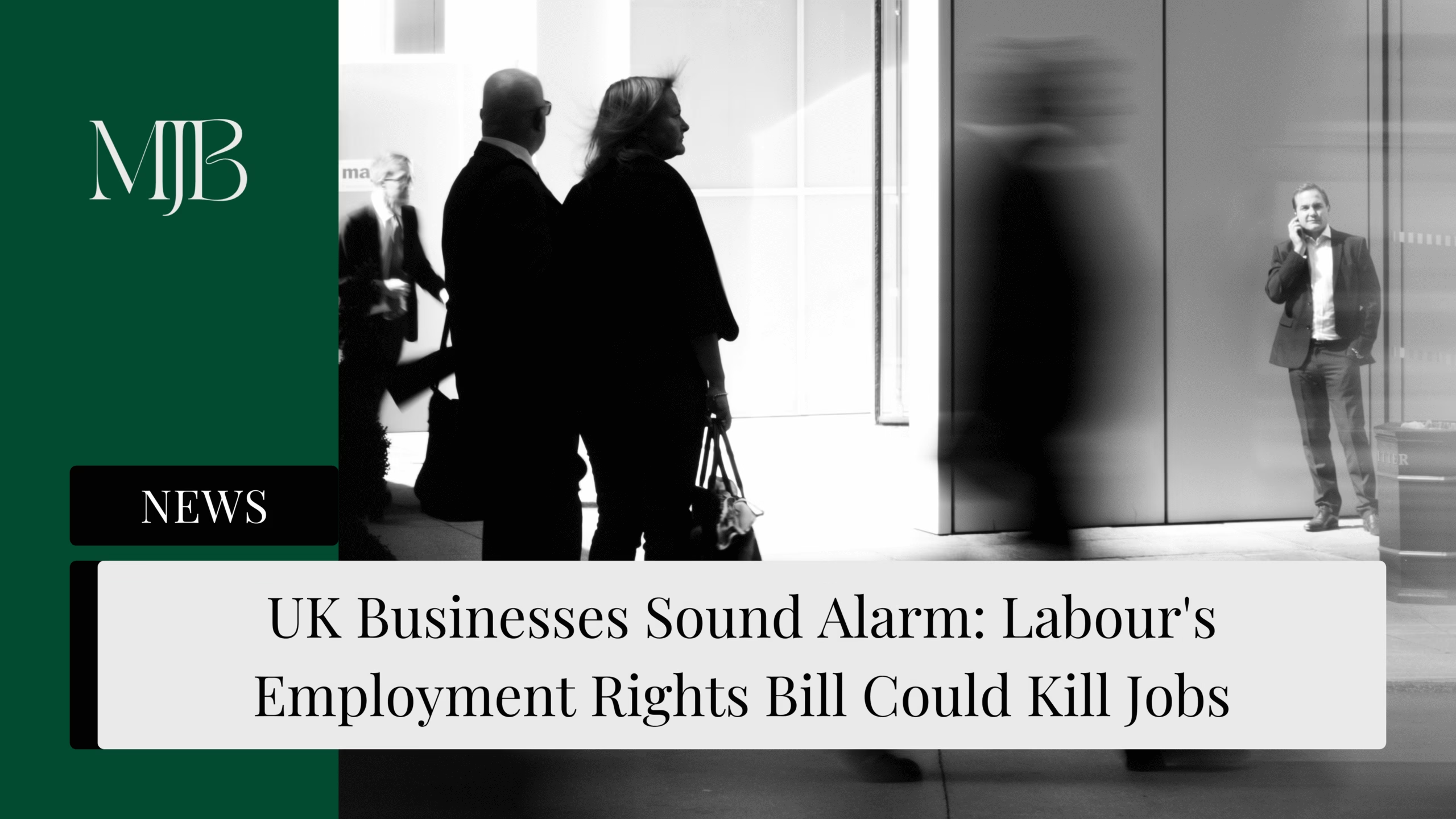Britain’s top business groups are frantically waving red flags at the government’s new Employment Rights Bill, warning it could torpedo an already struggling jobs market. With 142,000 jobs vanishing in the past year and employers already reeling from higher National Insurance contributions, the timing couldn’t be worse.
The bill’s “day one rights” provision has business leaders particularly spooked – it would let workers sue for unfair dismissal from their first day on the job, rather than waiting six months. That’s got hiring managers thinking twice about taking risks on new talent.
What’s Got Businesses So Worried?
Day One Rights: The Hiring Freeze Fear
Currently, new hires can’t claim unfair dismissal for their first six months. The new bill scraps that grace period entirely. Business groups argue this will make employers ultra-cautious about hiring, especially for smaller firms who can’t afford lengthy tribunal battles.
Think about it – would you be as willing to give someone a shot if they could potentially drag you to court from day one?
Zero Hours Contracts Get the Chop
The bill forces companies offering zero hours contracts to guarantee minimum shifts. While this sounds great for workers, businesses warn it kills the flexibility that makes these arrangements attractive to both sides.
Many workers actually prefer the flexibility of zero hours contracts – students, parents, or people with multiple income streams. The new rules might just push these opportunities underground.
Strike Rules Get Looser
The government’s also scrapping the 50% turnout requirement for strike ballots and making it easier for trade unions to gain recognition. Business leaders fear this could spark more industrial action just when the economy needs stability.

The Numbers Don’t Lie
The Office for Budget Responsibility (OBR) already flagged the bill would have a “net negative” effect on the UK economy. With Chancellor Rachel Reeves sitting on just £9.9bn of fiscal headroom, even a 0.1% reduction in growth forecasts could wipe that buffer out completely.
The jobs market’s already on life support:
- 142,000 jobs lost in the past 12 months
- Employers cutting back due to higher National Insurance costs
- Business confidence at multi-year lows
Last-Ditch Effort for Changes
Heavy hitters from the British Chambers of Commerce, CBI, Make UK, and Institute of Directors have all signed a letter to new Business Secretary Peter Kyle. They’re hoping he’ll be more business-friendly than his predecessor and push back against Deputy PM Angela Rayner’s worker-focused agenda.
The letter specifically calls for immediate changes rather than retrospective tweaks through secondary legislation – essentially asking for surgery now, not bandages later.
What Happens Next?
With the November Budget looming, the government faces a tricky balancing act. They promised to be the party of both workers and business, but this bill suggests they’re picking sides.
The OBR’s reportedly warning of lower productivity forecasts, which could force Reeves to find other ways to juice economic growth. If businesses are right about the Employment Rights Bill creating a hiring chill, those growth targets become even harder to hit.
The Bottom Line
Labour’s Employment Rights Bill has business leaders genuinely rattled – and for good reason. With the jobs market already hemorrhaging positions and growth forecasts looking shaky, now might not be the time for sweeping employment reforms that could spook employers further.
The government needs to decide: are they willing to risk short-term economic pain for long-term worker protections? With just £9.9bn of fiscal wiggle room and the November Budget approaching fast, that’s a gamble that could backfire spectacularly.
Want to stay ahead of UK economic policy changes? Keep an eye on our coverage of the upcoming Budget announcements and business reactions.
Frequently Asked Questions
Q1: Will the Employment Rights Bill definitely hurt job creation?
A: The OBR thinks so, flagging a “net negative” economic impact. With 142,000 jobs already lost and employers spooked by higher costs, many economists expect hiring to slow further.
Q2: What are “day one rights” exactly?
A: Currently, new employees can’t claim unfair dismissal for their first six months. The bill removes this protection period, letting workers sue from their very first day.
Q3: Why are businesses so concerned about zero hours contract changes?
A: The bill forces employers to guarantee minimum hours, removing the flexibility that makes these contracts attractive. Many businesses use them for seasonal work or to match staffing with unpredictable demand.
Q4: Could the government still change the bill?
A: Possibly, but Labour MPs were ordered to reject Lords’ amendments that would have addressed business concerns. The new Business Secretary Peter Kyle might be more receptive to changes.
Q5: How does this affect the UK’s economic outlook?
A: With the Chancellor’s fiscal headroom already tight at £9.9bn, any hit to growth forecasts from employment rule changes could severely limit the government’s spending options.
DISCLAIMER
Effective Date: 15th July 2025
The information provided on this website is for informational and educational purposes only and reflects the personal opinions of the author(s). It is not intended as financial, investment, tax, or legal advice.
We are not certified financial advisers. None of the content on this website constitutes a recommendation to buy, sell, or hold any financial product, asset, or service. You should not rely on any information provided here to make financial decisions.
We strongly recommend that you:
- Conduct your own research and due diligence
- Consult with a qualified financial adviser or professional before making any investment or financial decisions
While we strive to ensure that all information is accurate and up to date, we make no guarantees about the completeness, reliability, or suitability of any content on this site.
By using this website, you acknowledge and agree that we are not responsible for any financial loss, damage, or decisions made based on the content presented.






